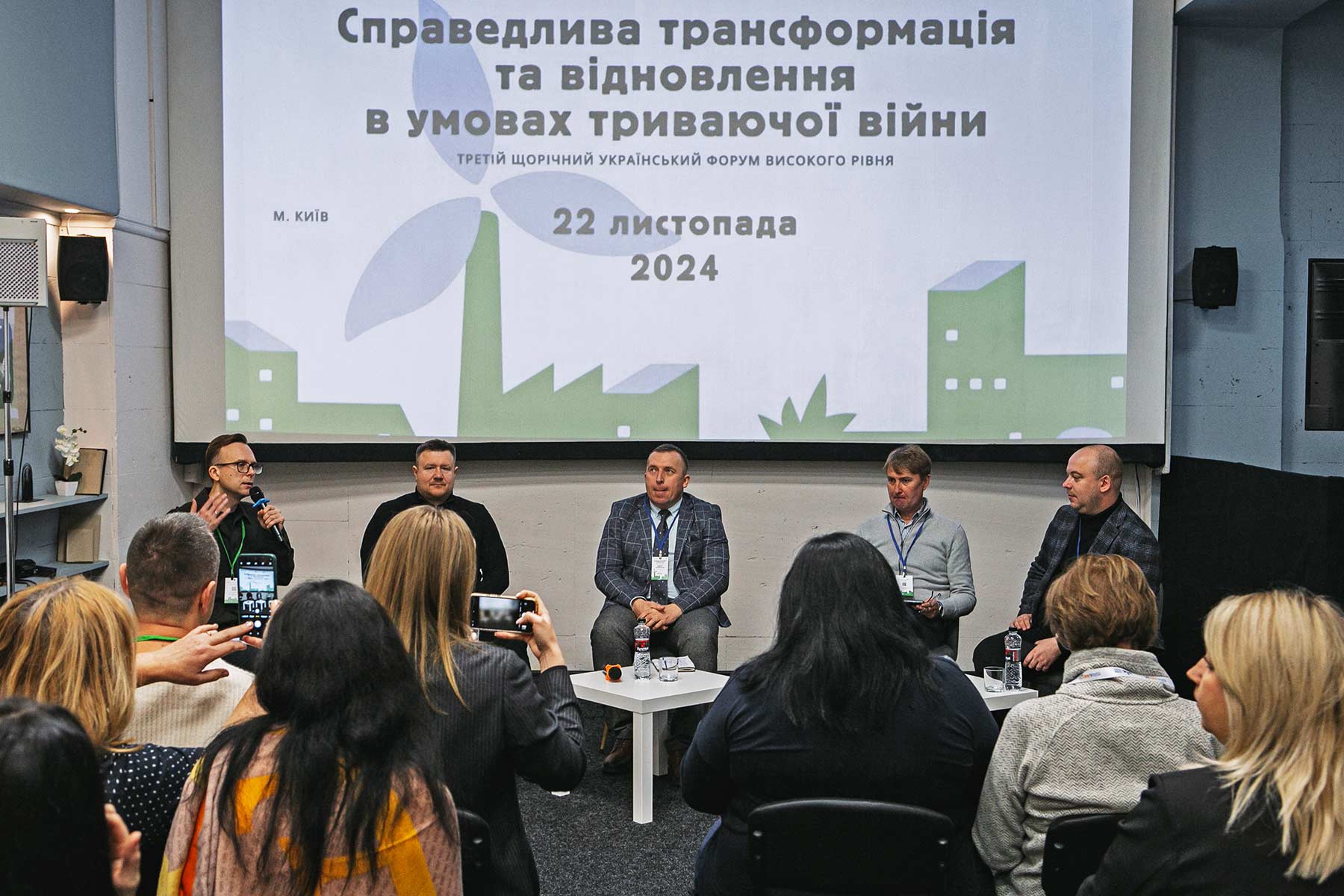The Third Annual Forum “Just Transition and Reconstruction Under the Conditions of the Ongoing War” took place in Kyiv. The event brought together representatives of communities, the government, and civil society organisations to discuss the challenges faced by Ukraine’s coal regions.
Even before the full-scale invasion, communities had been actively working on their just transition processes for years. Today they find themselves in varying conditions: some are fighting for survival in frontline areas or under occupation, others are planning for the future post-liberation, while certain communities, particularly in western Ukraine, continue their transformation efforts, adapting to the new realities of war.
However, all these communities face similar challenges: lack of funding, loss of skilled workers, the need for workforce retraining, and support for internally displaced persons.

Anastasiia Bushovska, an energy policy expert from the NGO Ecoaction, emphasised that just transition should not be a standalone activity in local recovery and development plans but should instead be a cross-cutting topic embedded in all planning activities and reflected across all sectors of communities’ life.
“If a coal mine is closing, it’s essential to plan in advance for measures to help the community address this challenge, create new jobs, and support the people,” she stressed.
The Forum also placed a significant focus on green energy as a cornerstone for Ukraine’s recovery.
“Just transition should concern not only coal regions but all carbon-intensive areas of Ukraine, as well as those undergoing recovery, with a strong emphasis on green energy. Of course, many regions have suffered severely and face numerous challenges, including veterans who need reintegration into society and displaced persons who require jobs,” stated Aron Kerpel-Fronius, Energy Advisor at the Delegation of the European Union to Ukraine.
According to him, just transition must be integrated into all aspects of Ukraine’s reconstruction. While Ukraine’s National Energy and Climate Plan (NECP) already mentions the concept, it needs more prominence. The NECP is a strategic document outlining Ukraine’s priorities through 2030, aiming for carbon neutrality by 2050 as enshrined in the recently adopted Law on the Principles of State Climate Policy. Elevating just transition within the NECP and other strategies is essential.
“We must plan 5-10 years ahead and have clear ideas for addressing these challenges. I’ve always seen just transition as the future of EU regional policy. It is built from the ground up, involving local communities and stakeholders, allowing each region’s potential to be harnessed without imposing top-down solutions,” added Mr. Kerpel-Fronius.
Ukraine’s Deputy Minister of Economy, Andrii Teliupa, noted that despite the war’s challenges, it also opens new opportunities. Many coal-fired power plants have been destroyed, making the shift to green energy a necessity. Ensuring this process is just, particularly for mono-industrial towns, is crucial.
“Ukraine is transitioning from an economy built on coal extraction and use to a greener, more sustainable model. For us, the key is ensuring this transition benefits both businesses and people. This is not merely an international obligation or compliance with EU directives; it should be our own choice, yielding benefits for citizens without adverse consequences,” emphasised Teliupa.
Participants of the annual Forum agreed that only joint efforts between the state and communities can address current challenges. The event served as an important step toward creating a platform for dialogue among all stakeholders. Collaboration, strategic vision, and a focus on green energy are the principles that will guide Ukraine along the path of just transition, building a sustainable future for all communities.
The event is organized by the NGO Center for Environmental Initiatives Ecoaction and the Luhansk Regional Human Rights Center “Alternatyva” in cooperation with the Heinrich Böll Foundation’s Ukraine Office, supported by SSNC and Sida, and with financial support from the European Union.
For more information please contact Ecoaction`s press team press@ecoact.org.ua

